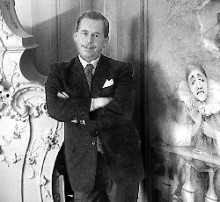The life of Vaclav Havel, who is stepping down as president of the Czech Republic, could serve as inspiration for one of Havel’s own absurdist plays. Born in 1936 into one of the wealthiest Czech families, Havel was one of the people persecuted because of their “wrong class origins” after the Communist takeover of 1948.
Havel defied his misfortune by establishing himself during the 1960s as one of Europe’s leading playwrights, only to become a pariah again after the Soviet-led invasion of Czechoslovakia crushed the “Prague Spring” reform movement in 1968. But he returned to lead his country’s tiny dissident community. Famous around the world for both his writings and his struggle against communism, he endured ceaseless harassment, including imprisonment for five years at the beginning of the 1980s. In fact, he was just released from another term in prison when the “Velvet Revolution” of November 1989 catapulted him into the presidency.
It is impossible to separate Havel the playwright from Havel the dissident or Havel the political leader. His earliest plays were political, ridiculing the wooden locutions of communist rhetoric. Even during the liberal Prague Spring, Havel remained a dissenter, never accepting the idea of “socialism with a human face,” arguing instead that real democracy was the only alternative to communism. Later, as a dissident, Havel continued writing and became a politician of sorts as the unofficial leader of the anti-communist opposition. Later still, he became the leader of that opposition at its moment of triumph.
A dissident as president is bound to be unorthodox. Havel continued writing, changing his genre from plays and essays to speeches, most of which are, in fact, philosophical writings. Indeed, he regularly put forth ideas— on the dangers of globalization, on the need for global responsibility, on his vision of Europe as a federation of states and regions— before other political leaders dared to do so.
At home, he exasperated party politicians by preaching the need for morality in politics or by warning against excessive partisanship. He repeatedly spoke of building a robust civil society, arguing that political parties will degenerate into sects if they are closed to influence from below.
Although Havel refuses to describe himself in terms of left and right, he is more a communitarian than a classical liberal, and certainly more leftist than rightist. He emphasized that a democratic system cannot be based only on institutions and mechanisms, such as the checks and balances between the executive, the legislature, and the judiciary; democracy needs more than political parties and free elections.
For Havel, democracy without true democrats is impossible. Only a civil society, in which active citizens are freely engaged in public life and show altruism and solidarity with others, can keep democracy vital. To quote Havel’s close friend, the Catholic priest and philosopher Tomas Halik (whom Havel once proposed as his successor), democracy without civil society is like a body without blood circulation.
Perhaps a person as original and unorthodox as Havel only becomes a political leader in revolutionary times. Revolutions demand moral clarity and unshakeable conviction. But elevation to the heights of power in this way has its costs. Because Havel did not go through the usual party schools of political training, he often felt that he need not respect the rules of the political game, and he often showed contempt for the compromises and moral short cuts practiced by politicians.
While he was seen abroad through the prism of his heroism and his philosophical speeches, at home Havel was often perceived as being deeply engaged in the political scrum. His critics argue that he developed a taste for intrigue and used behind-the-scenes maneuvering to achieve his aims. Others accused him of pursuing “non-political politics”— a concept of democracy whose protagonists wish to do away with political parties entirely and replace them with the more nebulous and perhaps more easily manipulated “civil society.”
But Havel was drawn into everyday politics because the Czech constitution gave him no choice. He had to appoint officials, select prime ministers after parliamentary elections, award state decorations, and make speeches. True, he provoked party bosses by his often unorthodox approach. But given the partisanship and intense provincialism of the Czech Republic, any president who bucks the system and is as cosmopolitan as Havel would face difficulties.
Perhaps Havel’s biggest failure was that he did not grasp as quickly as others, including his main political rival, Vaclav Klaus, that Czechoslovakia as a federal state of two nations was doomed after 1989. The Slovaks, who had not experienced their own state and felt patronized by the Czechs, gradually eroded the common state.
Klaus, who thought that the economically less successful Slovakia was holding the Czechs back, did not object. Havel, however, believed until the last moment that the common state could be saved. As a result, many Slovaks saw him as condescending toward them, of failing to understand their national aspirations. In July 1992, Slovak lawmakers blocked his reelection as Czechoslovak president.
But Havel’s domestic failures were more than offset by his foreign policy contributions: persuading America and Western Europe to enlarge NATO — an organization which, prior to 1989, he thought should be abolished, and advocating Czech membership in the European Union. Above all, Havel used his international prestige to give the Czech Republic a positive image, one which the country— plagued by many post-communist ills— perhaps did not fully deserve.
Partly owing to Havel, the Czech Republic is now a standard democratic country whose fate does not depend on one politician. But without Havel, the Czechs may well find that they no longer receive the same warm reception in the international arena.
By Jiri PEHE, former Chief Political Advisor to President Havel, currently director of New York University in Prague.
© : Project Syndicate, January 2003







